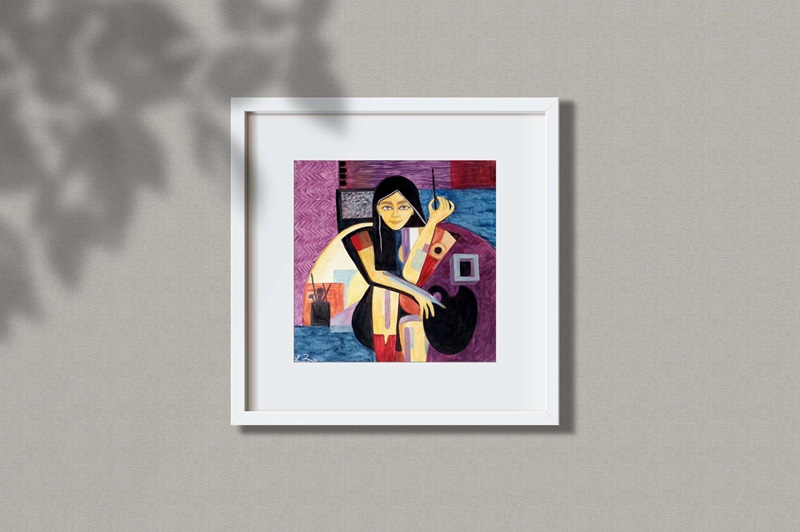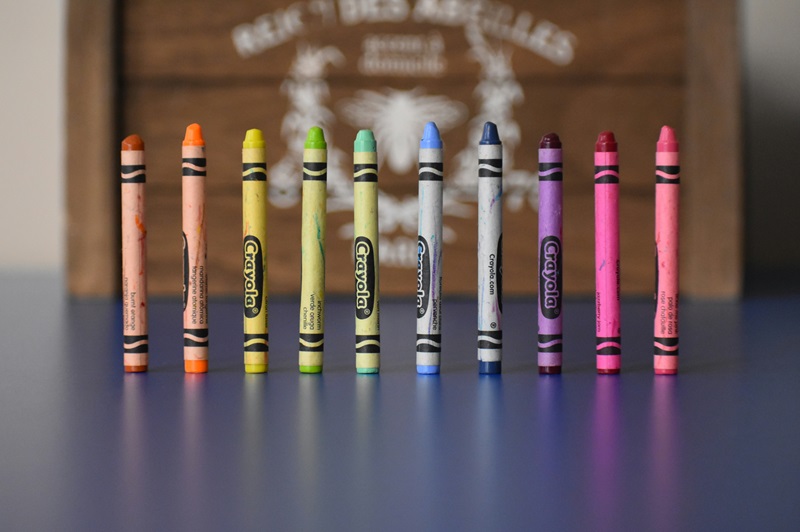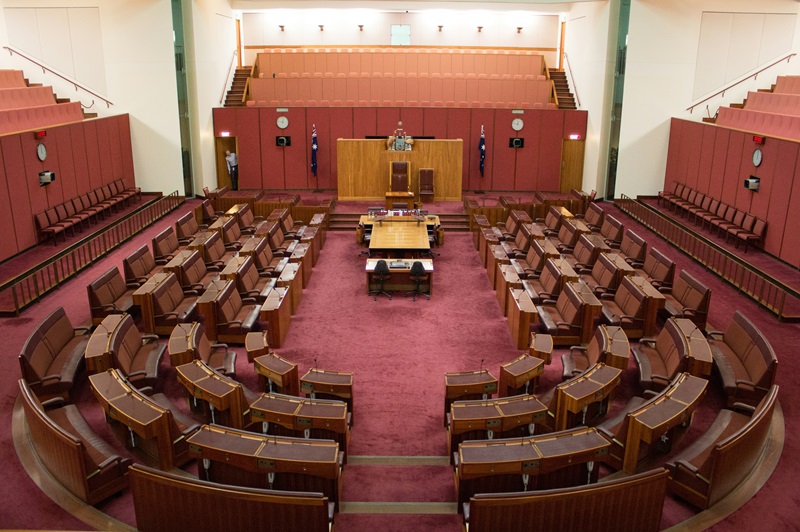NFTs and Copyright: Balancing Opportunities and Challenges
H.Rashid - 21 Jan 2024

NFTs, or non-fungible tokens, have gained immense popularity, drawing attention to the intricacies of legal frameworks, particularly for newcomers. Unlike cryptocurrencies, NFTs come with intellectual property rights, making each registered work in this domain unique and irreplaceable. Unfortunately, the legal landscape concerning copyright and exclusive property rights in this area has not fully evolved, and the existing laws governing cryptocurrencies do not comprehensively address NFT-related issues.
Under copyright laws, artists automatically obtain exclusive ownership rights upon creating a work, allowing them to decide on aspects such as replication, drawing inspiration, altering nature, and distributing copies of the work. The decision to convert a work into an NFT lies entirely with the original owner, the creator of the work. For instance, if I own a piece of art and hold copyright, including the exclusive rights to reproduction, creation of derivative works, and providing copies, I can choose to NFT my work without relinquishing copyright. Conversely, as the work falls under my exclusive rights, any violation, such as unauthorized copying or NFT production, can lead to legal recourse through complaint filings.
While many NFTs are either new artworks or conversions by their original owners, attention should be given to works with existing copyrights where the owner's consent was not involved in their NFT transformation. An individual lacking exclusive ownership rights may either have legally obtained permission to copy the work or seek to create a new piece inspired by an existing artwork. The creation of art inspired by a copyrighted work is legally permissible only if the right to use the work has been obtained from the owner or if the work undergoes changes resulting in a new form of expression or meaning.
A buyer of an NFT gains a certificate of ownership, allowing them to display or transfer the work within specific limits. Despite this, the buyer does not acquire rights related to copyright, and the original copyright, covering reproduction, adaptation, publication, etc., remains with the original owner. In summary, purchasing an NFT does not automatically confer the copyright to the buyer unless explicitly transferred under specific conditions. During the NFT sale, the owner of the work has the discretion to transfer or retain the rights associated with the work.
To what extent can NFT support copyright for a work?
NFT means the transfer of ownership of a digital asset to a buyer. A virtual certificate that you own an original copy of a song, gif, image, or… For example, if a sports brand produces NFTs for a limited portion of its products, it can claim that the people who bought the NFTs own the physical products in return for having those digital documents. NFTs act as digital certificates and are stored in crypto wallets on blockchains to be visible to everyone. So since they are easy to track, they can make fraud virtually impossible. In fact, following this transparent process, the original copy of the work is secured with the help of blockchain technology and everyone can see if the artwork is authentic or not. In addition, it will be easier for the owner of the work to track down the copyright law and be able to defend the rights that are intended for him. In addition, the original owner of an NFT can take a certain share of each sale, which can be a suitable financial incentive for artists to enter this space.
Although NFT can provide a digital document that can be cited for works, and also provide proper tracking and access for people, it still cannot be presented as a flawless method. For example, the existence of the fact that anyone can easily produce an NFT and there is always the possibility that this work belongs to someone else and that the copyright and exclusive property rights of the owner of the work will be violated to sell the work in the digital space. Because the next issue is the existence of the unknown nature that governs the blockchain and NFT space, it will be very difficult to track the identity of the person who violates the copyright law.
In other words, since people do not need to use their real identity when creating NFTs, they can perform transactions anonymously, which will make legal actions against the wrongdoer more complicated. In general, it can be said that although the sale of NFTs has many advantages and its popularity among people is increasing day by day, it is still necessary to ask serious questions regarding the protection of artists' rights in this space due to the anonymous nature of many people. Digital should be given the appropriate answer.
Under copyright laws, artists automatically obtain exclusive ownership rights upon creating a work, allowing them to decide on aspects such as replication, drawing inspiration, altering nature, and distributing copies of the work. The decision to convert a work into an NFT lies entirely with the original owner, the creator of the work. For instance, if I own a piece of art and hold copyright, including the exclusive rights to reproduction, creation of derivative works, and providing copies, I can choose to NFT my work without relinquishing copyright. Conversely, as the work falls under my exclusive rights, any violation, such as unauthorized copying or NFT production, can lead to legal recourse through complaint filings.
While many NFTs are either new artworks or conversions by their original owners, attention should be given to works with existing copyrights where the owner's consent was not involved in their NFT transformation. An individual lacking exclusive ownership rights may either have legally obtained permission to copy the work or seek to create a new piece inspired by an existing artwork. The creation of art inspired by a copyrighted work is legally permissible only if the right to use the work has been obtained from the owner or if the work undergoes changes resulting in a new form of expression or meaning.
A buyer of an NFT gains a certificate of ownership, allowing them to display or transfer the work within specific limits. Despite this, the buyer does not acquire rights related to copyright, and the original copyright, covering reproduction, adaptation, publication, etc., remains with the original owner. In summary, purchasing an NFT does not automatically confer the copyright to the buyer unless explicitly transferred under specific conditions. During the NFT sale, the owner of the work has the discretion to transfer or retain the rights associated with the work.
To what extent can NFT support copyright for a work?
NFT means the transfer of ownership of a digital asset to a buyer. A virtual certificate that you own an original copy of a song, gif, image, or… For example, if a sports brand produces NFTs for a limited portion of its products, it can claim that the people who bought the NFTs own the physical products in return for having those digital documents. NFTs act as digital certificates and are stored in crypto wallets on blockchains to be visible to everyone. So since they are easy to track, they can make fraud virtually impossible. In fact, following this transparent process, the original copy of the work is secured with the help of blockchain technology and everyone can see if the artwork is authentic or not. In addition, it will be easier for the owner of the work to track down the copyright law and be able to defend the rights that are intended for him. In addition, the original owner of an NFT can take a certain share of each sale, which can be a suitable financial incentive for artists to enter this space.
Although NFT can provide a digital document that can be cited for works, and also provide proper tracking and access for people, it still cannot be presented as a flawless method. For example, the existence of the fact that anyone can easily produce an NFT and there is always the possibility that this work belongs to someone else and that the copyright and exclusive property rights of the owner of the work will be violated to sell the work in the digital space. Because the next issue is the existence of the unknown nature that governs the blockchain and NFT space, it will be very difficult to track the identity of the person who violates the copyright law.
In other words, since people do not need to use their real identity when creating NFTs, they can perform transactions anonymously, which will make legal actions against the wrongdoer more complicated. In general, it can be said that although the sale of NFTs has many advantages and its popularity among people is increasing day by day, it is still necessary to ask serious questions regarding the protection of artists' rights in this space due to the anonymous nature of many people. Digital should be given the appropriate answer.
What can I do if someone converts my work to NFT without my knowledge and consent?
This issue can be challenging for the artist and can be accompanied by conflicting events. First, the negative point is that since the blockchain and NFT platform easily allow people to hide their identity and remain anonymous during transactions, it also faces difficulties in pursuing copyright issues. In addition, since with NFT, the work is stored and published in a decentralized platform, it will not be technically easy to remove it from external agents, and even the wrongdoer may be able to sue the artist for removing the work he published. However, this is not all that the artist can do to protect his rights, and there are still solutions for him. Many NFT buying and selling platforms comply with the copyright law; In this way, a person can inform the platform where his work is published and send them a form based on the violation of the copyright law. For example, the form sent to the OpenSea platform as the largest NFT buying and selling market should include the following:
• Electronic or physical signature of the person who owns the copyright of the work or his legal representative
• Providing evidence of having a copyright about the claimed work, for example, an internet address or a link where the work has been previously uploaded.
• Contact information such as email address or address.
• A petition stating that the work has been misused and uploaded in unauthorized ways.
It is true that in this case, taking action against the violator of the copyright law is accompanied by difficulties, but in any case, the sale of the work can be prevented.
• Electronic or physical signature of the person who owns the copyright of the work or his legal representative
• Providing evidence of having a copyright about the claimed work, for example, an internet address or a link where the work has been previously uploaded.
• Contact information such as email address or address.
• A petition stating that the work has been misused and uploaded in unauthorized ways.
It is true that in this case, taking action against the violator of the copyright law is accompanied by difficulties, but in any case, the sale of the work can be prevented.






